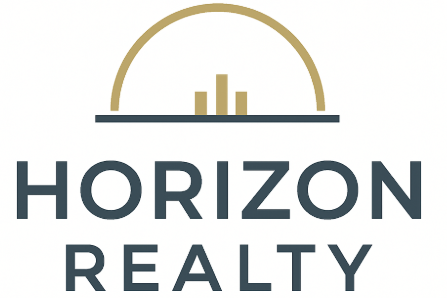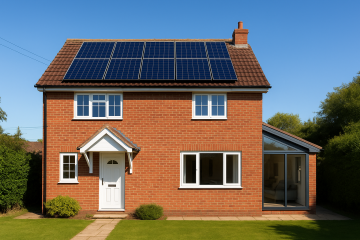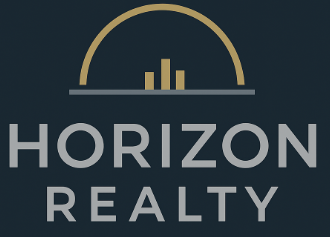
Reading Property Market Trends 2025: What Buyers & Investors Should Know
Reading at a Glance
Average house price: £346,000 (ONS, June 2025)
Average rent: £1,544/month (+7.6% YoY)
Short-term trend: Prices steady, rents rising
Mortgage approvals: Highest in six months (Nationwide, Aug 2025)
Best bet for investors: High-yield flats in RG1 and student lets in RG6
Market Overview: Stabilising Prices, Shifting Dynamics
Nationally, UK house price growth in 2025 is moderating. Rightmove recently halved its annual forecast from 4% down to 2%, citing a surge in listings and cooling seller confidence. Asking prices dropped 1.2% in July—the steepest monthly fall since 2002—though sales agreed remain up 5% year-on-year.
Nationwide also reports an average 2% year-on-year price growth in 2025, with optimism rooted in gradually easing affordability pressures and modest interest rate cuts.
For Reading specifically, the Office for National Statistics reveals the average house price in June 2025 was £346,000, virtually unchanged from June 2024. Semi-detached homes show a modest 1.5% increase, while flat prices dipped 2.1%. Rental demand is strong—private rents averaged £1,544/month, up 7.6% year-on-year.
Reading Property Market Snapshot
House Prices
- Detached: ~£646k (flat YoY)
- Semi-detached: ~£430k (+1.5% YoY)
- Terraced: ~£342k (+0.3% YoY)
- Flats: ~£244k (−2.1% YoY)
(Source: ONS Reading)
Rental Market
- 1-bed flat: ~£1,025/month
- 2-bed flat: ~£1,367/month
- 3-bed house: ~£1,744/month
- 4+ bed house: £2,350+/month
– Rents are rising faster than house prices, boosting yields for buy-to-let investors.
Market Momentum
- Stock levels are 10% higher YoY, easing buyer choice (Haslams Q2 2025 report).
- Viewings per sale are up; sellers must price competitively.
- Nationally, prices dipped −0.1% in August, but approvals rose to a 6-month high (Nationwide).
Key Drivers of Demand in Reading

Elizabeth Line & Fast Commutes
Reading to London Paddington is 25 minutes on GWR and ~50 minutes direct via the Elizabeth Line. Frequency upgrades mean more trains per hour in peak times.
Station Hill Regeneration
A £850m redevelopment delivering 1,300 homes, 600,000 sq ft offices, and retail. Major tenants include PwC and PepsiCo, boosting job and rental demand.
Student Market
The University of Reading’s 20,000+ student base + tight PBSA supply drive demand for shared houses in Earley, Whitley, and Central Reading. With national PBSA undersupply, this trend is strengthening.
Buyer & Investor Insights: What to Watch
Affordability & Mortgage Constraints
Mortgage repayments now consume about 35% of take-home pay, versus the long-term norm of 30%, tightening affordability for many buyers. That said, lenders have responded—some now extend up to 5.5× income lending for qualifying first-time buyers.
Supply Surge & Regional Shifts
The rise in supply—10% more homes listed compared to last year—is intensifying competition among sellers. In southern markets (including Reading), this is dampening price growth, while northern regions outperform with stronger demand and quicker sales.
However, Reading offers unique attractions: rental income is rising faster than average, and redevelopment projects like Station Hill are boosting local appeal.
Tax Policy Uncertainties
Speculation of new property taxation—such as an annual levy on homes over £500,000 or capital gains tax for primary residences above £1.5 million—is cooling sentiment among high-value market participants.
3. Neighbourhood Mini-Guides

Caversham (RG4):
- Semi-detached £480k+, rents £1,600–1,900 (2-bed)
- Popular with families, riverside appeal
- Yields: 4–5% typical
Central / Station Quarter (RG1):
- Flats ~£250k–£300k
- Rent £1,300–£1,500 (2-bed)
- Strong commuter/student demand; yields 5–6%
Earley (RG6):
- Family houses £400k–£500k
- University demand; student lets high occupancy
- Yields: 5–6%
Tilehurst (RG30):
- More affordable terraces and semis
- Rent £1,200–£1,600 (2-bed)
- Good yields (4.9%); strong local schools
What Buyers Should Do in 2025
- Act strategically—but patiently. Supply is up; pricing matters more than ever. Overpriced listings may linger.
- Explore financing options. With mortgage approvals up and better rate deals emerging, first-time buyers may benefit from more competitive terms. Some lenders now offer up to 5.5× income multiples for first-time buyers.
- Factor in local dynamics. In Reading, semi-detached structure offers resilience, and rent growth promises strong yield potential.
What Investors Should Know
- Leaner capital growth, stronger yields. Asking prices have softened, but growing rental demand and rising rents in Reading make buy-to-let properties potentially attractive.
- Mind tax policy changes. Speculation around new property taxes (annual levies on £500k+ homes) could reshape profitability.
- Target regeneration zones. Station Hill and the Elizabeth Line catchment will drive tenant demand and resale value. Station Hill’s delivery of mixed-use space and residences in central Reading enhances appeal for both rental and capital appreciation.
Action Checklists
Buyers
- Get a mortgage in principle early.
- Compare affordability at current rates.
- Focus on energy efficiency (EPC B+ homes sell faster).
Investors
- Run yield and void stress tests.
- Stay updated on property tax policy.
- Prioritise commuter areas (RG1, Caversham, Earley).
The Reading property market in 2025 is marked by stable prices, rising rents, and major regeneration projects. For buyers, affordability remains a challenge but choice is improving. For investors, rental yields and long-term demand drivers (Elizabeth Line, Station Hill, student lets) make Reading a resilient market.
While national trends show price flattening, Reading’s rising rent environment and location improvements add local upside. Staying alert to evolving mortgage terms and tax policy will be essential for making informed decisions.
FAQs
Are Reading house prices rising in 2025?
Yes, but slowly—average prices are up just 0.1% YoY (ONS). Detached and semi-detached homes are holding value, while flat prices dipped −2.1%.
What’s the average rent in Reading in 2025?
One-bed flats average £1,050, two-bed flats £1,350, and family houses £1,600–£1,800 depending on area.
What’s a good rental yield in Reading?
Gross yields average 4–6%. RG1 flats can reach 6–6.5%, while family houses in suburbs average 4–5%.
Is Reading good for buy-to-let in 2025?
Yes, particularly RG1 flats and RG6 student lets, with yields around 5%. Regeneration projects like Station Hill are expected to boost demand further.
Is the Elizabeth Line boosting Reading demand?
Yes. Faster direct services to London make Reading popular with commuters, pushing rental demand near the station.
Is Reading good for student lets?
Yes—20k+ students at the University of Reading and limited PBSA supply mean demand for HMOs remains high.











